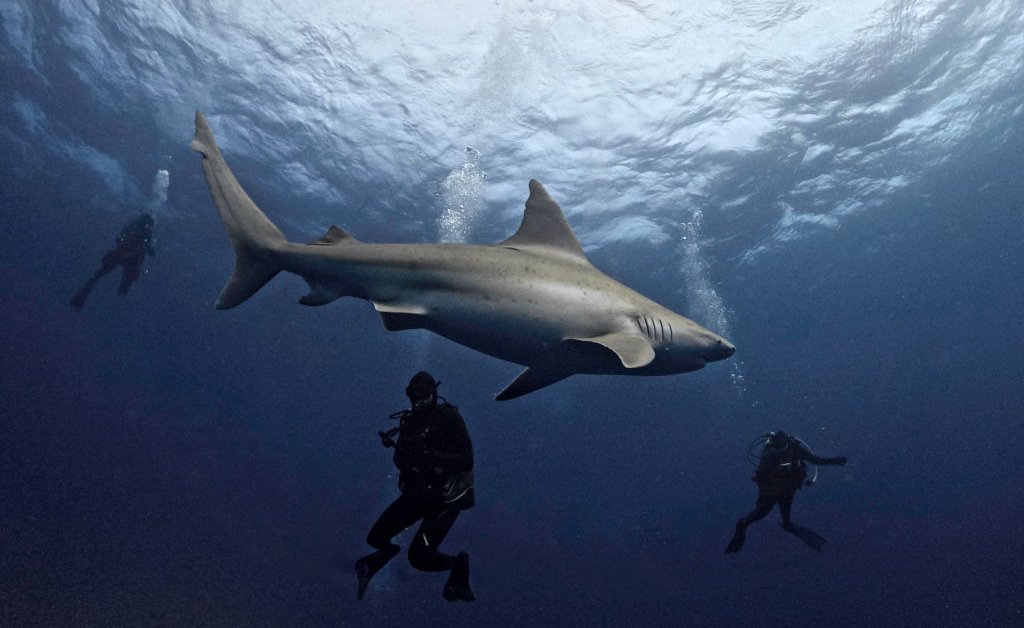Jaws' Legacy: Examining The Film's Influence On Marine Animal Protection

Welcome to your ultimate source for breaking news, trending updates, and in-depth stories from around the world. Whether it's politics, technology, entertainment, sports, or lifestyle, we bring you real-time updates that keep you informed and ahead of the curve.
Our team works tirelessly to ensure you never miss a moment. From the latest developments in global events to the most talked-about topics on social media, our news platform is designed to deliver accurate and timely information, all in one place.
Stay in the know and join thousands of readers who trust us for reliable, up-to-date content. Explore our expertly curated articles and dive deeper into the stories that matter to you. Visit Best Website now and be part of the conversation. Don't miss out on the headlines that shape our world!
Table of Contents
Jaws' Legacy: Examining the Film's Influence on Marine Animal Protection
Steven Spielberg's 1975 blockbuster, Jaws, terrified audiences worldwide with its depiction of a great white shark terrorizing a beach community. While the film cemented the great white shark's place in popular culture as a fearsome predator, its impact extends far beyond box office success. Surprisingly, Jaws played a significant, albeit complex, role in shaping public perception of sharks and influencing marine animal protection efforts.
The "Jaws Effect": Fear and Misunderstanding
The immediate aftermath of Jaws' release saw a dramatic increase in shark attacks reported – or rather, reported shark attacks. While the actual number of incidents remained relatively consistent, the heightened public awareness and fear fueled by the film led to a surge in media coverage, creating a distorted image of sharks as inherently dangerous man-eaters. This "Jaws Effect," as it became known, resulted in widespread shark culls and a significant decline in some shark populations. Many innocent sharks were killed based on fear, rather than any real threat.
A Turning Point: Shifting Public Perception
However, the long-term impact of Jaws proved to be more nuanced. The film's immense popularity brought unprecedented attention to the ocean and its inhabitants. This heightened awareness, while initially fueled by fear, eventually paved the way for a greater understanding and appreciation of marine life. Environmental organizations capitalized on this increased interest, using the film's notoriety to advocate for shark conservation and raise funds for research.
From Fear to Conservation: The Rise of Shark Awareness
Jaws inadvertently triggered a crucial shift in public perception. While the initial response was one of fear and overreaction, subsequent documentaries and educational programs leveraged the existing public interest to highlight the vital ecological role sharks play in maintaining healthy ocean ecosystems. Organizations like the Shark Trust and the Pew Charitable Trusts have been instrumental in promoting shark conservation and combating the negative stereotypes perpetuated by sensationalized media portrayals.
The Importance of Scientific Accuracy in Media
The inaccurate portrayal of great white sharks in Jaws highlighted the importance of scientifically accurate depictions of marine animals in popular media. Subsequent films and documentaries have strived for greater realism and accuracy, contributing to a more nuanced public understanding of these magnificent creatures. This shift in approach reflects a growing responsibility among filmmakers to portray wildlife responsibly and avoid perpetuating harmful myths.
Modern Conservation Efforts & The Legacy of Jaws
Today, many organizations dedicate their efforts to shark conservation, focusing on:
- Protecting shark habitats: Establishing marine protected areas (MPAs) to safeguard crucial breeding and feeding grounds.
- Combating overfishing: Implementing sustainable fishing practices to prevent the accidental capture and killing of sharks.
- Raising awareness: Educating the public about the importance of sharks in the ocean ecosystem and dispelling harmful myths.
- Researching shark populations: Monitoring shark populations to track their health and inform conservation strategies.
Jaws, despite its initially negative impact, ultimately contributed to a larger conversation about marine conservation. Its enduring legacy serves as a reminder of the power of cinema to shape public opinion and the importance of responsible storytelling when depicting wildlife. While the film initially stoked unwarranted fear, it also unwittingly sparked a movement toward greater understanding and ultimately, protection of these crucial ocean predators.
Call to Action: Learn more about shark conservation efforts and support organizations working to protect these vital creatures. Your support can help ensure the survival of sharks and the health of our oceans. Visit the Ocean Conservancy website to find out how you can get involved.

Thank you for visiting our website, your trusted source for the latest updates and in-depth coverage on Jaws' Legacy: Examining The Film's Influence On Marine Animal Protection. We're committed to keeping you informed with timely and accurate information to meet your curiosity and needs.
If you have any questions, suggestions, or feedback, we'd love to hear from you. Your insights are valuable to us and help us improve to serve you better. Feel free to reach out through our contact page.
Don't forget to bookmark our website and check back regularly for the latest headlines and trending topics. See you next time, and thank you for being part of our growing community!
Featured Posts
-
 Assista Ao Vivo River Plate Vence Urawa Reds Na Copa Do Mundo De Clubes
Jun 18, 2025
Assista Ao Vivo River Plate Vence Urawa Reds Na Copa Do Mundo De Clubes
Jun 18, 2025 -
 Former Kansas City Chiefs Employee Files Racial Discrimination Lawsuit
Jun 18, 2025
Former Kansas City Chiefs Employee Files Racial Discrimination Lawsuit
Jun 18, 2025 -
 Castellanos First Phillies Day Off A Look At His 2023 Performance
Jun 18, 2025
Castellanos First Phillies Day Off A Look At His 2023 Performance
Jun 18, 2025 -
 Franco Mastantuono Narra El River Plate Urawa Mundial De Clubes En Directo
Jun 18, 2025
Franco Mastantuono Narra El River Plate Urawa Mundial De Clubes En Directo
Jun 18, 2025 -
 Who Is Vance Boelter Suspect In Minnesota Lawmakers Shooting In Custody
Jun 18, 2025
Who Is Vance Boelter Suspect In Minnesota Lawmakers Shooting In Custody
Jun 18, 2025
